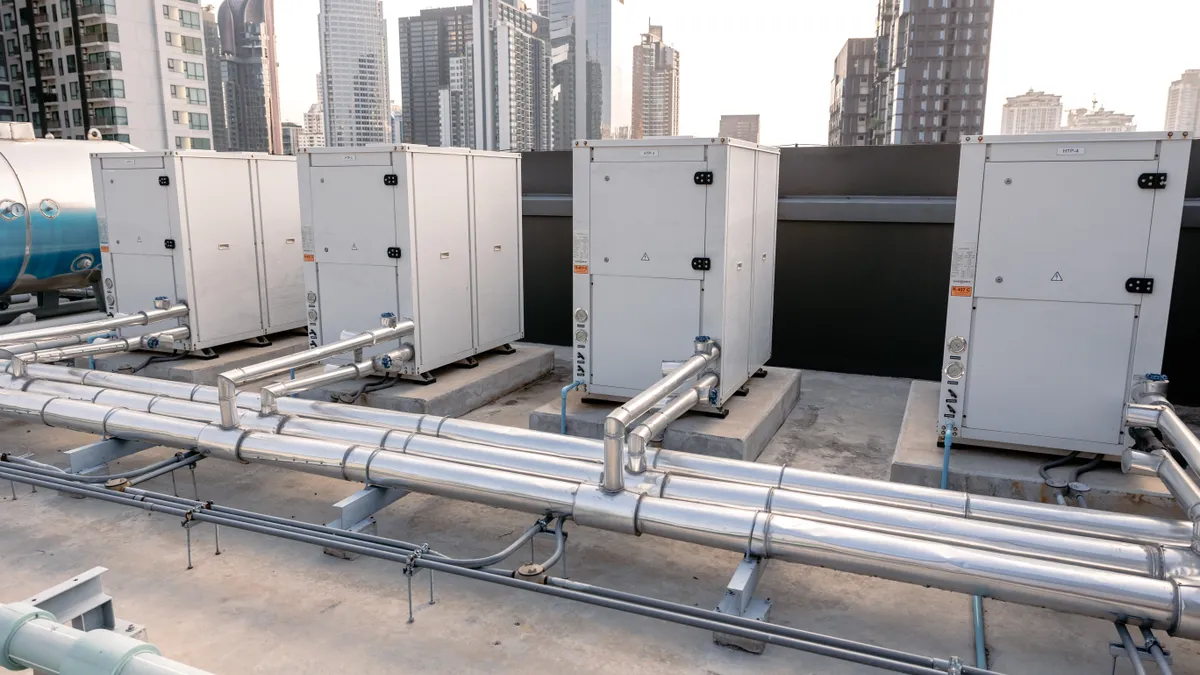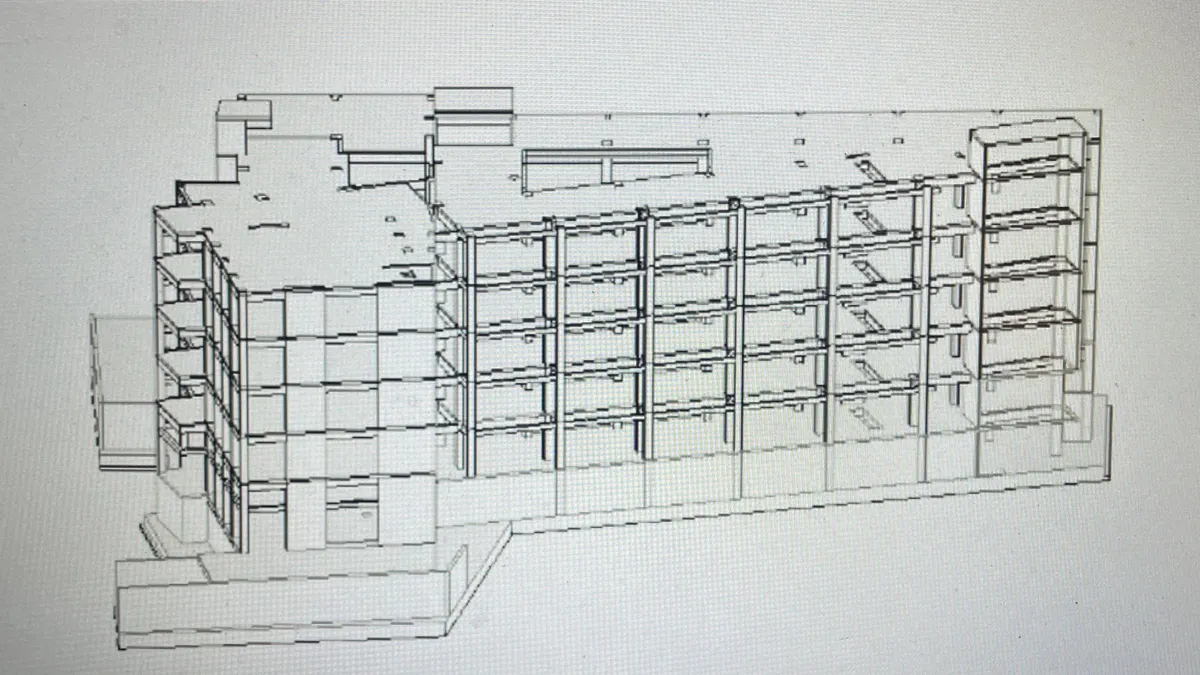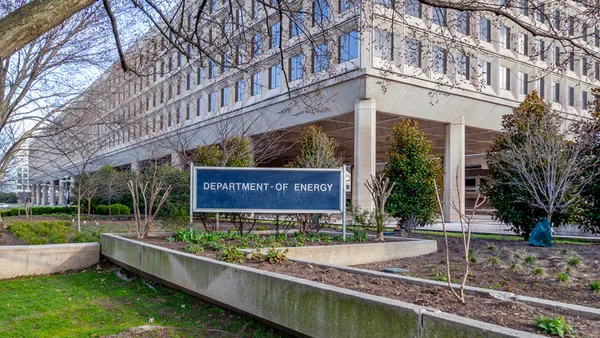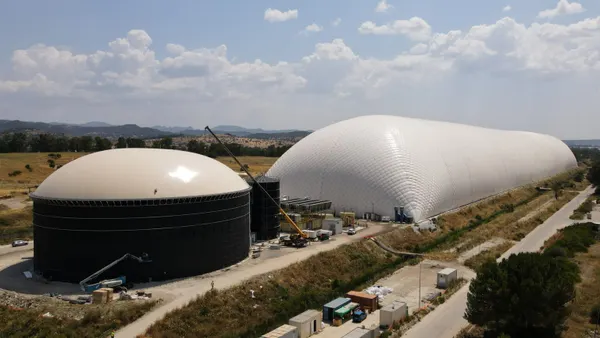Dive Brief:
- Daikin Applied is adding air-source heat pumps and other new technologies to its lineup of Rebel and Rebel Applied packaged rooftop HVAC systems to help customers electrify and decarbonize their heating and cooling, it said.
- The new units, equipped with electric heat pumps, “ultra-efficient” inverter compressors and an R-32 refrigerant with low global warming potential, are up to 20% more efficient than systems that use earlier refrigerants, according to a news release Tuesday. The units can perform efficiently in cold climates, operating in temperatures as low as -10 degrees Fahrenheit, according to the company website.
- The units are well-suited for low-rise commercial buildings and can generate energy savings of up to 55% above ASHRAE standards, Daikin Applied says.
Dive Insight:
Traditional heat pumps become less efficient and effective as temperatures drop, Daikin Applied said. However, heat pumps are becoming increasingly available with technologies like variable speed drives and vapor injection, which facilitate better performance in lower temperatures, Paul Torcelini, principal engineer for the U.S. National Renewable Energy Laboratory’s commercial buildings research group, said in an interview that addressed broader trends related to evolving heat pump technologies and heat pump adoption.
The Rebel units feature variable speed inverter compressors, electronic expansion valves, dehumidification control and “ultra-quiet Daikin condenser fans,” according to the company website. The boost function of Rebel units’ compressors can improve heating capacity by increasing their speed in cold conditions, per the release. With the inverter compressors and “the unique operating envelope” of the R-32 refrigerant, the Rebel and Rebel Applied rooftop units are “proficient in lower ambient temperatures,” Daikin Applied said in the release.
Rebel Applied units have extra coil surface and an additional compressor that activates when it is very cold. Optional features like energy recovery wheels can extend the heat pump’s capacity by preheating air before it passes through the heating coil for better performance in ambient air temperatures below 45 degrees Fahrenheit, the company said. Both rooftop systems also come with auxiliary electric heat limits and emergency backup controls that reduce the unit’s peak design electrical load, per the release.
The systems feature simplified installation for both new construction and retrofits and can remove or reduce the need to make changes in a building’s electrical infrastructure, especially in retrofit applications, Daikin Applied said.
“We’re not just making heat pumps available. We’re also making them practical for a wide range of applications,” Jim Macosko, vice president of product and sustainability solutions at Daikin Applied, said in a statement. “By addressing the historic limitations of heat pumps, we're making it easier for customers to use this technology, electrify their HVAC systems, and decarbonize in a way that benefits the environment and bottom line.”













